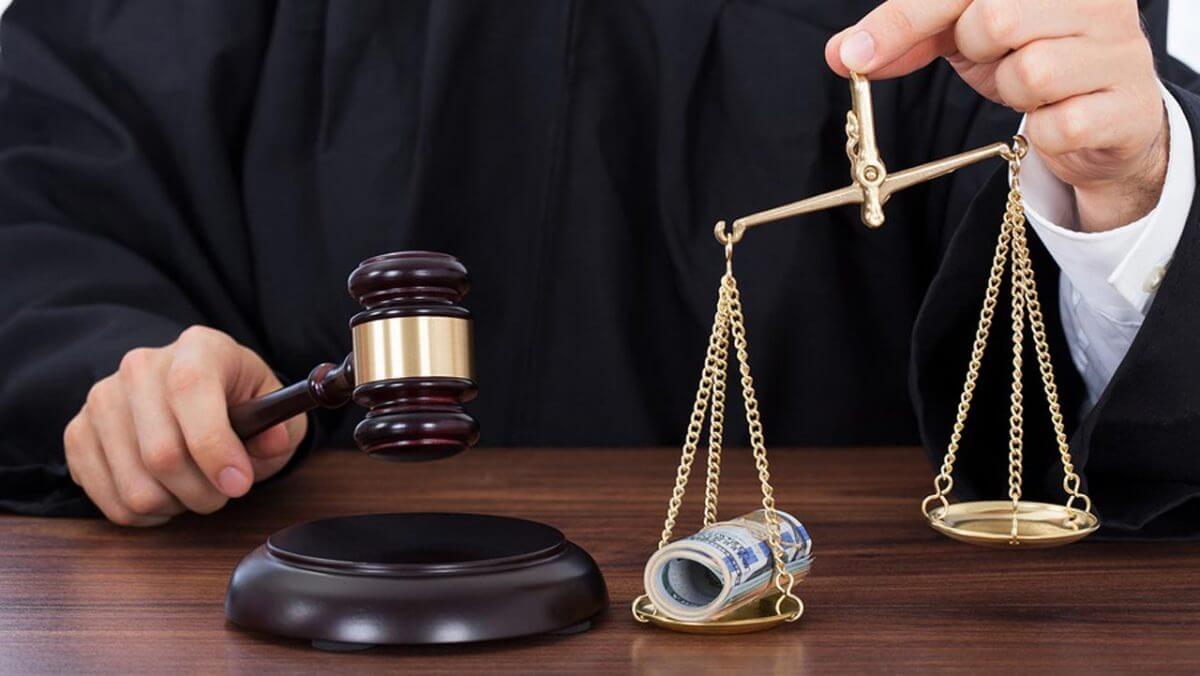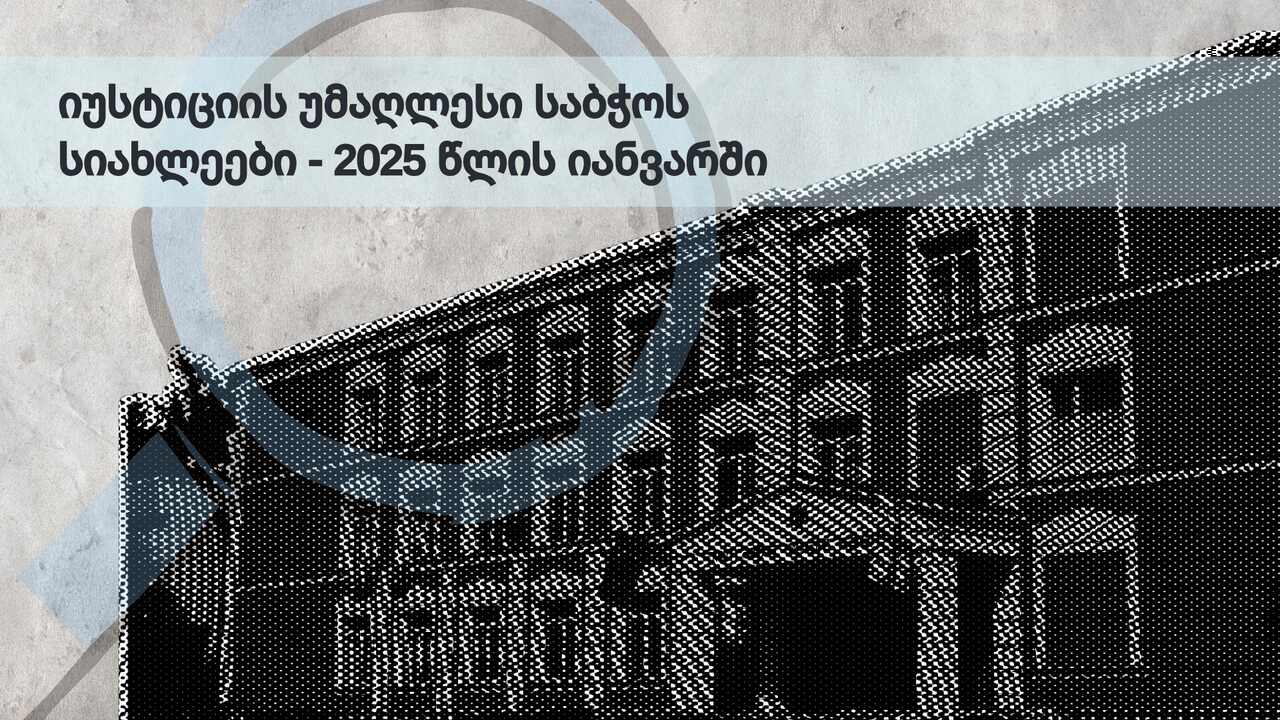State Authorities Should Immediately Respond to Signs of Systemic Corruption in the Judiciary

On August 6, 2022, a TV report entitled "Hidden wealth of the leaders of the judicial clan" was disseminated as part of a journalistic investigation by the Studio Monitor. The journalists report about the alleged undisclosed assets and income of influential judges in the judicial system. According to the journalistic investigation, the assets declared by the judges who have been holding the highest administrative positions in the judicial system for years, namely Mikheil Chinchaladze, Levan Murusidze, Irakli Bondarenko, Sergo Metofishvili, as well as the property and costs incurred by Lela Chania, head of the secretariat in the Tbilisi City Court, significantly exceed their income. It is assumed that judges may be hiding their properties and income by registering them in the names of their relatives, friends, and close acquaintances. Information about the property and income raises doubts about the legality of their origin. These undisclosed assets of judges and court officials may have been obtained by the way of corruption, which may be an indication of systemic corruption within the judiciary.
and property, for example:
- The President of the Tbilisi Court of Appeals, the most influential judge Mikheil Chinchaladze has not indicated in his property statement the luxurious real property owned by his aunt. The latter lives with Mikheil Chinchaladze, which is why, according to the law, Mikheil Chinchaladze is obligated to provide information about her property in the assets and property declaration; on the other hand, this property might belong to Mikheil Chinchaladze, who has registered the same in his aunt’s name.
- One of the leaders of the clan of judges, Levan Murusidze, allegedly hides a large amount of real estate and income belonging to the person living with him, Lela Chania, which Levan Murusidze is obliged to declare.
- Judges Levan Murusidze, Irakli Bondarenko, and Sergo Metofishvili have not indicated the travel and other expenses in their property statements, which is the obligation stipulated in the law.
- The value of the property owned by the head of the secretariat, Lela Chania, is much higher than the income she receives in the form of a salary.
The journalistic investigation reports on various ways through which the above judges conceal their income and property, for example:
- The President of the Tbilisi Court of Appeals, the most influential judge Mikheil Chinchaladze has not indicated in his property statement the luxurious real property owned by his aunt. The latter lives with Mikheil Chinchaladze, which is why, according to the law, Mikheil Chinchaladze is obligated to provide information about her property in the assets and property declaration; on the other hand, this property might belong to Mikheil Chinchaladze, who has registered the same in his aunt’s name.
- One of the leaders of the clan of judges, Levan Murusidze, allegedly hides a large amount of real estate and income belonging to the person living with him, Lela Chania, which Levan Murusidze is obliged to declare.
- Judges Levan Murusidze, Irakli Bondarenko, and Sergo Metofishvili have not indicated the travel and other expenses in their property statements, which is the obligation stipulated in the law.
- The value of the property owned by the head of the secretariat, Lela Chania, is much higher than the income she receives in the form of a salary.
The TV report offers a lot of factual information containing the signs of various crimes provided for in the Criminal Code of Georgia, which is sufficient ground for launching a criminal case. Accordingly, the legislation of Georgia, the degree of gravity of the allegedly committed crimes, and the interest in protecting the principle of the rule of law require the immediate initiation of a criminal investigation to determine the origin of the property of the judges and establish whether the said property was obtained by any corrupt or other criminal means (bribery, money laundering, etc.).
If it is confirmed that the judges have committed the crimes stipulated in the Criminal Code, this, in turn, will constitute the grounds for initiating disciplinary proceedings against the judiciary. In particular, according to Article 751, Paragraph 8, Sub-Paragraph "c.a" of the Organic Law of Georgia “On Common Courts”, disciplinary misconduct may be the commission of a corruption offense by a judge (an act that violates the principle of integrity), including illegal and/or undocumented possession of the property. This violation, if confirmed, may serve as a basis for the dismissal of a judge.
Problems in the judicial system have repeatedly become the focus of attention of the domestic and international community. Signs of corruption in the judicial system cause serious damage to the principle of legality, and public confidence in the court, and also indicate the dishonesty of judges, which is incompatible with their official position. In this regard, the alarming facts investigated and disseminated by the media require an immediate response from those authorities whose scope of competence includes investigating such facts:
- We call on the General Prosecutor’s Office of Georgia to immediately begin an investigation into the facts presented in the TV report, promptly investigate the information about alleged corruption offenses committed by the judges, and bring the criminals to justice.
- We call on the Civil Service Bureau, taking into account the particular risk of corruption and high public interest, to examine the correctness of the information presented in the judges' statements and to respond accordingly.
Signatories:
Group of Independent Lawyers (GIL)
Democracy Index - Georgia (DIG)
Democracy Research Institute (DRI)
Human Rights Center (HRC)
Georgian Court Watch
Georgian Young Lawyers’ Association (GYLA)
Social Justice Center
Rights Georgia
International Society for Fair Elections and Democracy (ISFED)
Institute for Development of Freedom of Information (IDFI)































